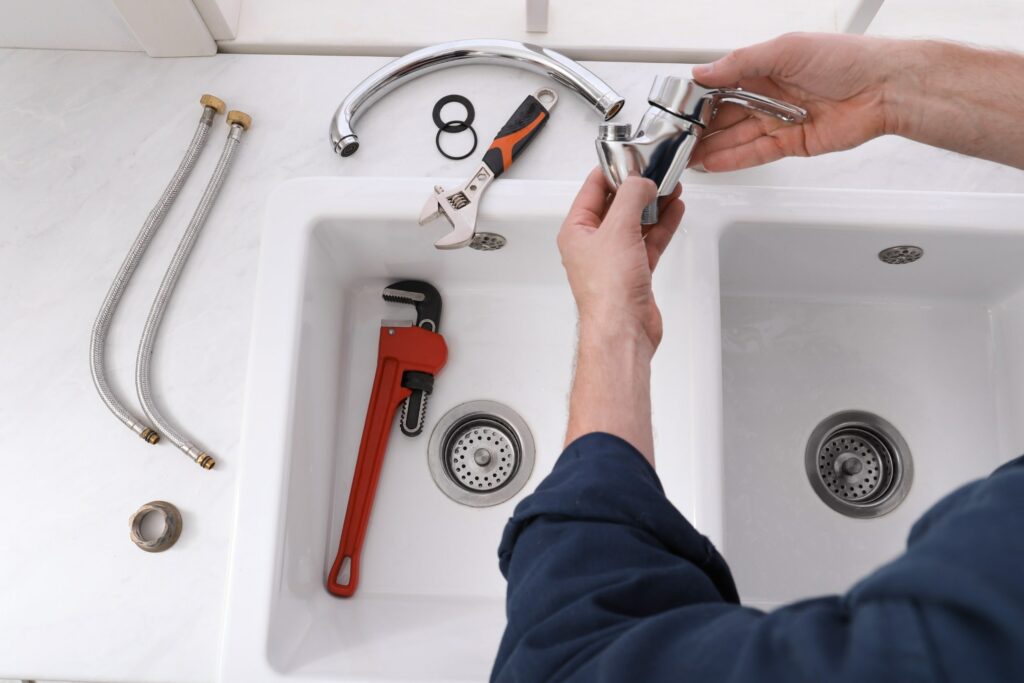Most people would likely agree that spending a little time and money periodically to prevent a future plumbing disaster is well worth it. Preventive plumbing maintenance can help save you a lot of money and stress by preventing expensive plumbing disasters from occurring.
Check Drains Periodically
Cleaning drains is a common request of a plumber, however there are simple steps that you can take on your own to help maintain the drains in your home. Items that are typically known to clog drains include hair, grease, and other debris. When these items build up over time, they can easily clog your drains. Consider getting a drain screen to stop hair from going down your shower drain in the first place. You can also unclog many drains by pouring boiling water mixed with some suds down the clogged drain. Or you may opt for chemical solutions available that can be poured down the drain to help breakup debris. Don’t be surprised when you find the occasional drain where chemical treatment doesn’t open the line. Since these chemicals can be quite caustic, just make sure to inform your plumber that you’ve placed chemicals in the line prior to having him get started.
Pay Attention to Insulation
The costs of repairing frozen pipes can range from the inexpensive to the very expensive depending on whether and how many bursts occur because of the freeze up. To save yourself from a pricey repair, make sure to turn off all indoor shut-off valves to any outdoor hose bibbs and sprinkler systems once the cold weather season approaches. Also, be sure to completely drain and detach your garden hose from the house – a frost-free hose bibb will not function with the hose still attached. Though insulating your pipes for the winter months is a simple task, it can save a lot of money in the long run. But it isn’t a panacea, as insulating alone may not be enough. A pipe with exposure to any cold air from outside will often freeze and burst even if it is insulated. If you find any pipes that are more susceptible to freezing; look for and seal against cold air intrusion first and then apply 110 volt heat tape prior to adding insulation. On the coldest of days, crack open your faucets to establish a trickle of water flow. This will reduce the chances of a frozen water line by allowing warmer water from the city main to slowly move through your piping.
Have Your Plumber Take A Look
Having an experienced plumber annually check your plumbing is a wise decision. Once you become familiar with what your plumber checks for, you may be able to recognize any potential problems and catch it before it becomes worse.
Some of the issues your plumber may inspect include:

- The tiles around the shower, sink, and water pipes. If loose tiles are found it could be a sign that the wall or floor is rotting and that there is a leak. On the opposite side of the wall from the shower valve, look for any softness in the lower drywall or for any mold developing. This could be a sign of leakage at the shower valve just inside the wall.
- The water pressure level. If low water pressure exists, it could be a sign that there is sentiment built up in the showerhead or faucet. It could even reveal a greater issue such as a water line restriction or pressure regulator problem. You can find water pressure testers that simply screw on to a hose bibb at your local home supply store. Residential water pressure should generally fall into the range of 50 to 80 psi. If it’s outside of this you should contact your plumber to have it evaluated further.
- The pipes for corrosion. Discolored pipes can reveal that corrosion is occurring, which can lead to poor pipe connection and leaks.
- How your sinks and tubs are draining. If the water is draining too slowly or bubbles surface when the water is trying to drain, the drain may be headed for a not-so-distant back-up.
- The water heater’s burner chamber to make sure that there is not any rust, leaks, or corrosion occurring. Also check around the two water connections up top and look for any leakage from the pressure relief valve usually located on the side of the tank. If you see any water here, you may wish to get a plumber involved to find and correct the cause.
- Inspect your washing machine hoses. These are a major source of catastrophic leakage and insurance claims. Consider replacing them with the stainless steel braided type before they burst (in time, many rubber ones will).
- Your toilet and how it flushes. Continuous flushing or improper flushing is a bad sign and a definite waste of money and water. Check the health of your toilet tank flapper by adding 10 drops of food color to the tank and then wait 15 minutes to see if any of the color arrives below in the bowl. If so, the flapper should be suspect.
- Any exposed piping and signs of leaking such as small stains or puddles. Check under your kitchen sink and bath vanities. An unchecked leak here can cause serious damage to your cabinets.
Many plumbing disasters can be avoided by taking preventative measures. By knowing the signs of trouble and what to look for, you may be able fix the problem before they become very expensive.
The post Avoiding Expensive Plumbing Repairs appeared first on Blue Sky Plumbing.

